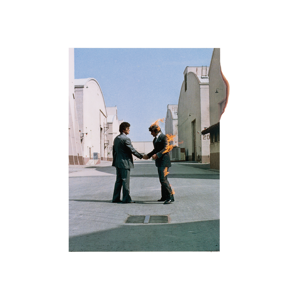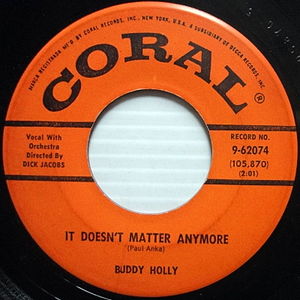Victoria University of Wellington is a public research university in Wellington, New Zealand. It was established in 1897 by Act of Parliament, and was a constituent college of the University of New Zealand.
Fred Dagg is a fictional character from New Zealand created and acted on stage, film and television by satirist John Clarke. Clarke appeared on New Zealand TV screens as Dagg during the mid to late 1970s, "taking the piss" out of the post-pioneering Kiwi "blokes" and "blokesses". The sense of the name "Dagg" is associated with the slang term dag. The Fred Dagg character is a stereotypical farmer and New Zealand bloke: clad in a black singlet and gumboots, hailing from the isolated rural town of Taihape, and attended by numerous associates all named "Trev". One memorable expression was uttered whenever there was a knock at the door: "That'll be the door." When Clarke first unveiled the character of Fred Dagg in recordings and on New Zealand TV in 1975, he became a national star. He also recorded a series of records and cassettes as Dagg, as well as publishing several books.

Wish You Were Here is the ninth studio album by the English rock band Pink Floyd, released on 12 September 1975 through Harvest Records in the UK and Columbia Records in the US, their first for the label. Based on material Pink Floyd composed while performing in Europe, Wish You Were Here was recorded over numerous sessions throughout 1975 at EMI Studios in London.

Talk Talk were an English band formed in 1981, led by Mark Hollis, Lee Harris (drums), and Paul Webb (bass). Initially a synth-pop group, Talk Talk's first two albums, The Party's Over (1982) and It's My Life (1984), reached top 40 in the UK and produced the international hit singles "Talk Talk", "Today", "It's My Life", and "Such a Shame". They achieved widespread critical success in Europe and the UK with the album The Colour of Spring (1986) along with its singles "Life's What You Make It" and "Living in Another World". 1988's Spirit of Eden moved the group towards a more experimental sound informed by jazz and free improvisation, pioneering what became known as post-rock; it was critically acclaimed but commercially unsuccessful.

Chrysalis Records is a British record label that was founded in 1968. The name is both a reference to the pupal stage of a butterfly and a combination of its founders' names, Chris Wright and Terry Ellis. It started as the Ellis-Wright Agency.
Salmonella Dub is a dub/drum n bass/reggae/roots band from New Zealand. The band was formed in 1992 by Andrew Penman, Dave Deakins, and Mark Tyler. The band has toured extensively throughout New Zealand, Australia, and Europe, including the UK and Ireland.

Malo Ioane Luafutu, also called Jeshua Ioane Luafutu, and better known by his stage name Scribe, is a New Zealand rapper of Samoan descent. He achieved two solo number ones on the singles chart from his debut album, The Crusader, which was released in 2003 in New Zealand and later certified four times platinum. He also reached number one as a featured artist on P-Money's 2004 song "Stop the Music", and in 2010 on R&B singer J.Williams' single "You Got Me".

William Manhire is a New Zealand poet, short story writer, emeritus professor, and New Zealand's inaugural Poet Laureate (1997–1998). He founded New Zealand's first creative writing course at Victoria University of Wellington in 1975, founded the International Institute of Modern Letters in 2001, and has been a strong promoter of New Zealand literature and poetry throughout his career. Many of New Zealand's leading writers graduated from his courses at Victoria. He has received many notable awards including a Prime Minister's Award for Literary Achievement in 2007 and an Arts Foundation Icon Award in 2018.

Escapology is the fifth studio album recorded by English singer-songwriter Robbie Williams. It was released on 18 November 2002 through EMI Records. The album features a guest appearance by singer Rose Stone and was produced by Guy Chambers and Steve Power. The album's lead single "Feel" was released on 2 December 2002, two weeks after the album. The track was an international hit, reaching the top of the charts in Austria, Poland, Germany, Italy, the Netherlands, and top five positions in countries such as Denmark, Ireland and the United Kingdom. Three other singles from the album were released: "Come Undone", "Something Beautiful" and "Sexed Up".

The discography of Robbie Williams, an English singer-songwriter, consists of twelve studio albums, one live album, ten compilation albums, one extended play, ten video albums, sixty-one singles, six promotional singles and fifty-six music videos. Williams originally found success in the male pop group Take That, which he joined in 1990 following a successful audition: they released a series of UK number-one singles, including "Pray", "Relight My Fire", "Babe" and "Back for Good". Williams left Take That in 1995 to pursue a solo career; the group disbanded the following year.

Mi-Sex is a New Zealand new wave band originally active from 1978 to 1986, and led for much of its existence by Steve Gilpin as vocalist, Kevin Stanton as guitarist and songwriter, Murray Burns as keyboardist and songwriter, and Don Martin as bassist. The group's manager for much of its career was Bob Yates. Mi-Sex achieved two top 10 hit singles in 1979-80: "Computer Games" in October 1979 and "People" in 1980. Their first two albums both reached the New Zealand top 10, Graffiti Crimes and Space Race. They were known for their cutting edge production and dynamic live shows. Gilpin died in January 1992, two months after a serious car accident from which he never recovered. Mi-Sex have periodically reformed, including in 2011 with Steve Balbi (ex-Noiseworks) on lead vocals. Stanton died on 17 May 2017, Martin on 10 August 2020.

Simon John O'Neill is a New Zealand-born operatic tenor. In 1998, his image appeared on the New Zealand one-dollar performing arts postage stamp.

The La De Da's were a New Zealand rock band from 1963 to 1975. They were formed as a mod-ish group, the Mergers, in Te Atatū, by long-term members Kevin Borich on lead guitar and vocals, Phil Key on lead vocals and guitar and Trevor Wilson on bass guitar. In mid-1968 they relocated to Australia. Their popular singles in New Zealand were "How Is the Air Up There?", "On Top of the World", "Hey! Baby", "All Purpose Low" and "Rosalie", while their hits on Australia's Go-Set National Top 40 were "Gonna See My Baby Tonight" (1971), "Morning, Good Morning" (1972) and "Too Pooped to Pop" (1974). The group released one of the first Australasian rock music concept albums, The Happy Prince (1969).

Mark Williams is a New Zealand singer with Recording Industry Association of New Zealand (RIANZ) number one hit singles, "Yesterday Was Just the Beginning of My Life" (1975) and a cover of Buddy Holly's "It Doesn't Matter Anymore" (1977) before he relocated to Australia later that year. His single, "Show No Mercy" (1990) was a top ten hit in both countries. He has undertaken extensive touring in support of numerous Australian bands and worked in television. In 2006 he became the vocalist for the reformed New Zealand band, Dragon.

Sweet Trials is the second studio album by New Zealand-born singer Mark Williams. It was released in March 1976. The album peaked at number 14 on the Official New Zealand Music Chart.

"It Doesn't Matter Anymore" is a pop ballad written by Paul Anka and recorded by Buddy Holly in 1958. The song was issued in January 1959, less than a month before Holly's death. "It Doesn't Matter Anymore" reached number 13 as a posthumous hit on the Billboard Hot 100 chart in early 1959, shortly after Holly was killed in a plane crash on February 3, 1959. The single was a two-sided hit, backed with "Raining in My Heart". "It Doesn't Matter Anymore" was Holly's last US Top 20 hit and featured the orchestral backing of Dick Jacobs. It was also successful in the United Kingdom, where it became the country's first posthumous number 1 hit.

Marlon Williams is a New Zealand singer-songwriter, guitarist and actor based in Lyttelton, New Zealand. Primarily known as a solo artist, he works and tours with his backing band The Yarra Benders and first came to attention as front-man of The Unfaithful Ways and for his collaborative work with musician Delaney Davidson.
"Yesterday Was Just the Beginning of My Life" is a song written by Vanda & Young and recorded by New Zealand-born singer songwriter, Mark Williams. The song was released in May 1975 as the second and final single from his debut studio album, Mark Williams (1975). The song peaked at number 1 on the New Zealand charts and was the highest selling single by a New Zealand artist in New Zealand in 1975.
"Sweet Wine" is a song written by Reece Kirk and recorded by New Zealand-born singer songwriter, Mark Williams. The song was released in October 1975 as the lead single from his second studio album, Sweet Trials (1976). The song peaked at number 7 on the New Zealand charts.
"If It Rains" is a song written by Kiki Dee and recorded by New Zealand-born singer songwriter, Mark Williams. The song was released in April 1976 as the second and final single from his second studio album, Sweet Trials (1976). The song peaked at number 25 on the New Zealand charts.














